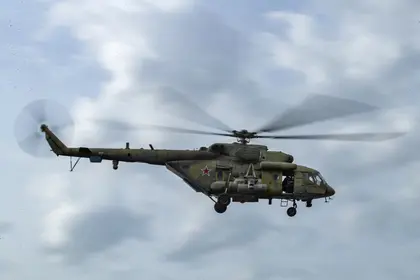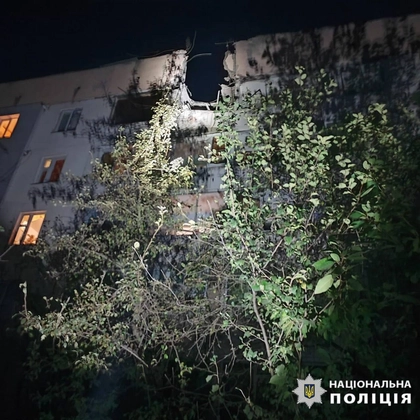A Russian combat pilot defected to US authorities because he opposed his country’s invasion of Ukraine, Monday news reports said.
The officer in Russia’s internal security troops Rosgvardia turned himself over to State Department officials at the US Embassy in the United Arab Emirates.
JOIN US ON TELEGRAM
Follow our coverage of the war on the @Kyivpost_official.
The original source of news of the defection appears to have been a Telegram channel called Dose Shpiona, and possibly linked with Ukrainian intelligence services. The information platform usually features information on reports of clandestine activities in the Russo-Ukraine war.
According to that report, a Russian flight officer identified as Senior Lieutenant Garichenko (call sign “Gavr”), was allowed by his chain of command to go on leave in the UAE with his family in late September, giving him the opportunity to quit his military service and defect.
Gavrichenko made the decision to burn bridges with Kremlin authorities because he and his family disagreed with Moscow’s decision to start a major war by invading Ukraine, and because of an upcoming assignment to combat duty. He offered his readiness to cooperate with US authorities, the report said.
According to the report, another pilot identified as Anton Vasil’ev, a classmate with Gavrichenko during training at Ivanovo air base in central Russia, moved to Los Angeles, California before the war started and was in contact with Gavrichenko and instrumental to his defection. Kyiv Post was unable to verify the Dose Shpiona account.

South Korea Demands 'Immediate Withdrawal' of North Korean Troops in Russia
News of yet another embarrassing-for-the-Kremlin defection of a trained pilot to Russia’s (according to Moscow-controlled media) greatest geopolitical opponent the US followed an unsanctioned flight by Russian helicopter pilot Captain Maksim Kuzminov, who on Aug. 23 flew a Russian air force Mi-8AMTSh helicopter to Ukrainian lines and handed it and himself over to Kyiv authorities.
According to Ukrainian official statements, agents from Ukraine’s national military intelligence agency were in contact with Kuzminov for weeks before the actual defection. His escape flight through Russia’s air defense network was, according to Ukrainian statements, tense but uneventful until landing, when two Russian flight crew unaware of the planned defection attempted to avoid capture. Ukrainian troops meeting the defection flight shot the pair dead.
Kuzminov’s defection and images of him and his helicopter were splashed across Ukrainian websites and social media. According to those reports, Kuzminov received a reward of $500,000, asylum and new residency documents for himself and his family, who had traveled to Ukraine prior to Kuzmimov’s theft of the Mi-8 from Russian authorities.
The first Russian airman widely reported to have defected from military service in the Russo-Ukrainian War is Lieutenant Dmitry Mishov, formerly a member of the Russian Air Force’s 15th Brigade of Army Aviation. A trained navigator, Mishov walked into Lithuania in June and asked for asylum, telling authorities in Vilnius he disagreed with Russia’s invasion of Ukraine and did not want to be responsible for killing or wounding Ukrainians.
According to Russian state-controlled media, a member of the Russian military going over to Russia’s opponents is guilty of treason and could face up to a life sentence in prison. Some Moscow talk shows have called for the penalty to be changed to execution.
One of the most famous Russian pilot defections took place during the Cold War when Viktor Belenko flew his MiG-25 (NATO: “Foxbat”) from a Soviet base in Vladivostok to Hakodate Airport on Japan’s northern island of Hokkaido in 1976.
The US took possession of the plane and dismantled it, discovering it was no threat based on its antiquated vacuum tube electronics and one-time-use disposable engines. At the time, future president and then-CIA Director George H. W. Bush said the information garnered by dismantling, examining, and analyzing the Foxbat was an “intelligence bonanza for the West.”
Belenko was granted permanent asylum in the US and wrote a book published in English entitled “MiG Pilot.” He was then granted citizenship by President Jimmy Carter in 1980 and became a US aerospace engineer. Belenko, 76, still lives in the United States.
The US government later returned Belenko's entire MiG-25 aircraft back to the Kremlin in multiple wooden crates.
You can also highlight the text and press Ctrl + Enter






